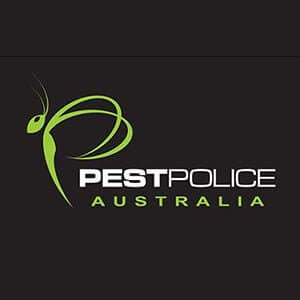Termite Control Melbourne
GET A FAST QUOTE NOW

GET A FAST QUOTE NOW
Over 40,000 properties inspected
Environmentally friendly treatments
12-month warranty
The word termite can instil a feeling of dread if it happens to be associated with the property you and your family live in, or the one you go to work in every day. Termites need professional treatment and handling, from people who know how to not only eliminate them, but to also prevent them from returning.
With over 40,000 properties inspected, our expert Melbourne Termite Control team will quickly and efficiently inspect, locate, and treat termite pest invasions. Like most pests, termites are seeking moisture, food and shelter and will find a way into your home if they happen to be nearby and sense that you can provide what they’re looking for. These cryptic little critters are attracted to timber, cellulose, and moisture, and will compromise the structural integrity of homes and buildings, destroying beams, floors, and even furniture. Termites have specialised enzymes in their guts that break down cellulose, allowing them to digest wood. They will enter your home through gaps and small cracks in walls and through flooring, both timber and concrete.
Termites will build mud tunnels between the source of food and their nest. For example, if there is a neighbouring tree with termites nearby, they will build tunnels under the ground to find a way into your home. Once they’ve decided they like your home, they establish colonies that can go unnoticed for a long time.
The financial impact of termite damage can be significant, and therefore prevention is the best approach to protecting your investment. This includes regular termite inspections, maintaining proper ventilation, installing physical termite barriers and treatment with termite-resistant chemicals.
Termite Control – Physical barriers
Physical termite barriers are effective defences against termite infestations. These barriers include but not limited to stainless steel mesh, sand, crushed stone, or plastic sheeting installed around slab edges, beneath concrete slabs or under your house if on stumps, creating an impenetrable barrier that prevents termites from accessing your home or workplace.
Termite control physical barriers are installed during construction phase, placed around the building’s perimeter or beneath concrete slabs, effectively blocking termite entry points. These barriers are durable, long-lasting, and environmentally friendly. Regular inspections and maintenance ensure their effectiveness, providing homeowners with peace of mind knowing their property is shielded against the destructive impact of termites.
Find out moreTermite Control – Chemical Sprays
Termite control chemical barriers involve applying liquid sprays to the soil around a building’s perimeter or beneath concrete slabs. The chemicals create a protective zone that repels or kills termites upon contact, preventing them from entering. Chemical barriers are long-lasting and can provide years of protection with proper maintenance and reapplication. They are highly effective in deterring termites and are often used in conjunction with regular inspections to ensure they remain effective. Homeowners can rely on chemical barriers as a proactive measure against termite damage.
Why choose Pest Police to eradicate pests from your home?
Pest Police has been trusted by thousands of happy clients in Melbourne for being on-time, effective and reliable. We’re a family-run business looking after family homes. We respond promptly to urgent enquiries especially those related to bees and wasps where children or people with health issues are concerned. You’ll have direct contact with our expert technicians backed up by our warranties and 100% success rate. Pest Police use only environmentally friendly products and humane processes to remove pests.
We’re as easy to reach as we are to deal with! Complete the online enquiry form or call us
on 1800 737 876.
Talk to us about booking a pest inspection for ants and spiders and receive 50% for rats
and mice at the same time!
SUBURBS NEAR US
While we cater Melbourne wide with no premium fee, below are suburbs near us.
CLIENTS FEEDBACK